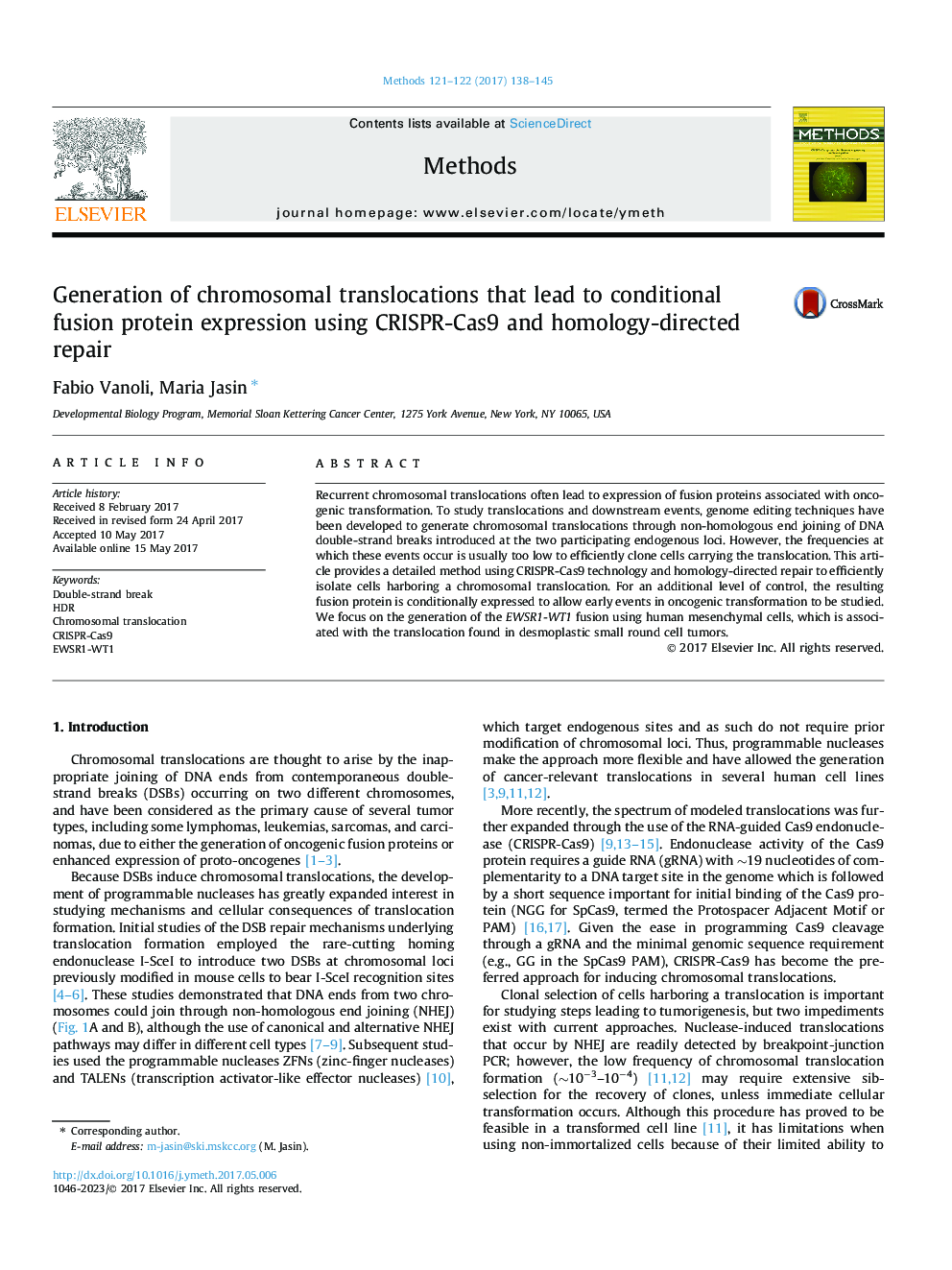| کد مقاله | کد نشریه | سال انتشار | مقاله انگلیسی | نسخه تمام متن |
|---|---|---|---|---|
| 5513606 | 1541206 | 2017 | 8 صفحه PDF | دانلود رایگان |

- CRISPR-Cas9-generated DSBs induce chromosomal translocations by HDR.
- An HDR strategy allows selection of clones with the desired translocation.
- Expression of the fusion gene is conditional and depends on Cre recombinase.
- EWSR1-WT1 translocation t(11;22)(p13;q12) found in DSRCT is modeled.
Recurrent chromosomal translocations often lead to expression of fusion proteins associated with oncogenic transformation. To study translocations and downstream events, genome editing techniques have been developed to generate chromosomal translocations through non-homologous end joining of DNA double-strand breaks introduced at the two participating endogenous loci. However, the frequencies at which these events occur is usually too low to efficiently clone cells carrying the translocation. This article provides a detailed method using CRISPR-Cas9 technology and homology-directed repair to efficiently isolate cells harboring a chromosomal translocation. For an additional level of control, the resulting fusion protein is conditionally expressed to allow early events in oncogenic transformation to be studied. We focus on the generation of the EWSR1-WT1 fusion using human mesenchymal cells, which is associated with the translocation found in desmoplastic small round cell tumors.
Journal: Methods - Volumes 121â122, 15 May 2017, Pages 138-145